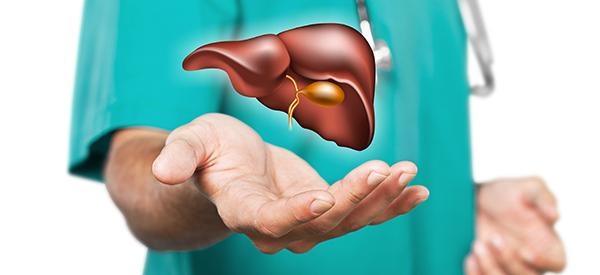
3 Warning Signs That You Have a Fatty Liver
When someone consumes more fat and sugar than their bodies can handle, fat can develop in the liver. If fat levels build up in more than 5% of the organ, it is considered a fatty liver. Although more common among those who are overweight, this condition can happen to anyone, even those who appear healthy on the outside.
There are two types of fatty liver disease:
- Non-Alcoholic Fatty Liver Disease (NAFLD): In this case, the fat buildup is not alcohol-related. NAFLD can occur in two forms – simple fatty liver, where fat accumulation is benign, and non-alcoholic steatohepatitis (NASH), where inflammation of the liver may result in cirrhosis or even cancer.
- Alcoholic Fatty Liver Disease (AFLD): Also called alcoholic steatohepatitis, this form of fatty liver is caused by excessive alcohol consumption. When alcohol is broken down in the body, toxic substances are released, damaging liver cells and causing inflammation.
In this article, we go over common non-alcoholic causes of fatty liver disease, three warning signs that you may have it, and natural remedies that can help you address its symptoms.
Common Causes of Fatty Liver Disease
The most common cause of fatty liver disease is obesity. Other contributing factors include genetic, use of certain drugs and chemicals, malnutrition and starvation, rapid weight loss, and even intestinal bypass surgery for obesity. Health conditions like the following can also accompany and contribute to a fatty liver:
Certain conditions often accompany and may contribute to fatty liver disease:
- Diabetes
- High blood pressure
- Elevated blood lipid levels (hyperlipidemia)
3 Warning Signs of Fatty Liver Disease
Typically, non-alcoholic fatty liver disease is asymptomatic, meaning it has no physical symptoms. However, you should consult your doctor if you have any of the following risk factors.
1. You’re Storing Weight in Your Belly
Overweight people are at a higher risk of developing a fatty liver. When you have visceral fat (the kind stored in your abdomen), your risk of non-alcoholic fatty liver disease starts going up. Researchers have found that visceral fat and liver fat are correlated, especially among middle-aged and younger adults.
2. Your Cholesterol Is Too High
High triglyceride levels and high LDL (“bad”) cholesterol levels in your blood can indicate liver fat accumulation. Almost all cholesterol measured in the blood comes from the liver. Normally, the liver produces cholesterol on its own, but when you consume fat-rich foods, it releases more fat into the bloodstream and raises cholesterol levels.
3. You Have High Blood Pressure
If you have or suspect you may have liver disease, you should monitor your blood pressure and maintain heart health in general: researchers from Germany found that people with non-alcoholic fatty liver disease were three times more likely to have hypertension than those who did not. These patients are also more likely to die from cardiovascular issues.
⇒ Ancient Japanese Tonic Melts 54 LBS Of Fat (Drink Daily Before 10 am) (Video)
Natural Remedies
Although all potentially serious conditions should be reviewed by a medical professional, there are natural remedies that can reduce symptoms and even prevent their onset.
Apple Cider Vinegar
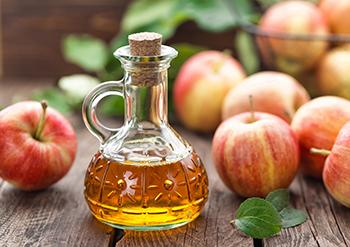
Apple cider vinegar reduces fat accumulation in the liver and induces weight loss. It also has hepato-protective properties and helps maintain healthy liver function. For optimal results, take one teaspoon of apple cider vinegar twice a day in warm water. If you are prone to getting an upset stomach, try pairing the beverage with food.
Coffee
 Researchers have found that coffee may protect against metabolic syndrome, which is closely related to non-alcoholic fatty liver disease. It may be because of its anti-inflammatory effects or because it inhibits fat deposition in the liver.
Researchers have found that coffee may protect against metabolic syndrome, which is closely related to non-alcoholic fatty liver disease. It may be because of its anti-inflammatory effects or because it inhibits fat deposition in the liver.
This study found that patients with preexisting liver disease who consume more than two cups of coffee a day are less likely to develop fibrosis and cirrhosis or have their condition turn fatal.
Black coffee contains no added fat or sugar, so it is the best choice.
Dandelion
Studies have shown that dandelion tea can treat non-alcoholic fatty liver disease caused by a high-fat diet. This is because dandelions contain powerful bioactive compounds that can reduce cholesterol levels in the body. Betacarotene, an antioxidant found in dandelions, also reduces cell damage.
If you know you aren’t allergic to dandelions, make a tea by boiling four or five flowers for two minutes in a cup of water. Strain and serve.
Flax Seeds
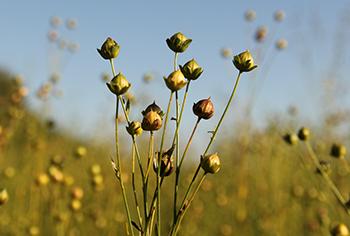 Not only are flax seeds good for digestion, but they also protect the liver from fatty buildup. In one study, flax seeds reduced weight, cholesterol levels, insulin resistance, and inflammatory cells in patients suffering from NAFLD.
Not only are flax seeds good for digestion, but they also protect the liver from fatty buildup. In one study, flax seeds reduced weight, cholesterol levels, insulin resistance, and inflammatory cells in patients suffering from NAFLD.
Flax seeds are also rich in fatty acids that prevent oxidative stress on cells and reduce liver damage.
You can consume flax seeds in seed or powder form. For enhanced taste and health benefits, combine them with water or sprinkle some on your salads, oatmeal, or yogurt.
Lemon
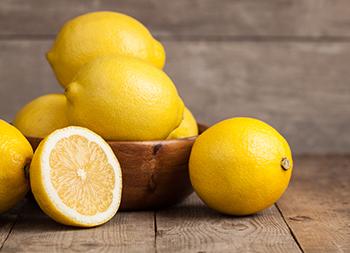 Lemons are packed with vitamin C and potent antioxidants that prevent free radical damage to liver cells and support liver health. Additionally, lemon’s natural hepatoprotective properties have a beneficial impact on alcoholic-induced fatty liver by reducing lipid profile levels. This study found that lemon juice had a beneficial effect on lab mice with alcohol-induced liver injuries.
Lemons are packed with vitamin C and potent antioxidants that prevent free radical damage to liver cells and support liver health. Additionally, lemon’s natural hepatoprotective properties have a beneficial impact on alcoholic-induced fatty liver by reducing lipid profile levels. This study found that lemon juice had a beneficial effect on lab mice with alcohol-induced liver injuries.
For best results, add a teaspoon of lemon juice to a cup of warm water. Drink it on an empty stomach.
Milk Thistle
As a traditional remedy for liver problems, milk thistle may boost the liver’s ability to eliminate toxins. There is some evidence that milk thistle (or its active ingredient, silymarin) may lower AST and especially ALT levels in the liver. As enzymes, AST and ALT are important indicators of liver damage, so lower levels suggest better liver health.
Turmeric
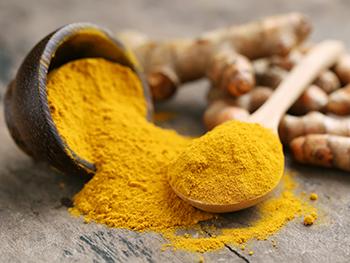 A number of studies have suggested that turmeric, or a compound it contains called curcumin, may play a role in treating nonalcoholic fatty liver disease.
A number of studies have suggested that turmeric, or a compound it contains called curcumin, may play a role in treating nonalcoholic fatty liver disease.
The anti-inflammatory properties of turmeric may alleviate inflammation, which is a key symptom of NAFLD.
During an eight-week study in 2021, 64 people with NAFLD were given 2 grams of turmeric or a placebo every day. Participants in the turmeric group saw their liver enzymes drop significantly. Additionally, triglycerides and cholesterol levels declined in the turmeric group. The placebo group showed no such changes.
To make a nourishing drink for your liver, add a pinch of turmeric and a teaspoon of lemon juice to a cup of boiling water and consume.
At the moment, lifestyle and dietary changes are the most effective ways to manage fatty liver. Weight loss, physical activity, a nutritious diet, and some or all of the remedies in this article may help improve symptoms associated with non-alcoholic fatty liver and set you on the road to better health.
The Forgotten Shelf Stable Food You Need for Healthy and Vital Fats (Video)
DIY Colon Detox with Ingredients You Have in Your Kitchen Right Now



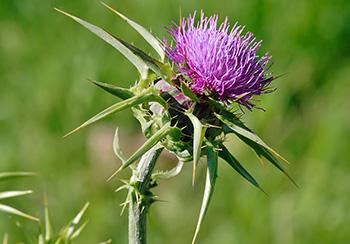

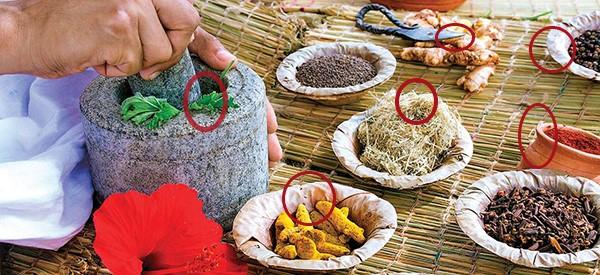


Can I just take a teaspoon of Apple Cider Vinegar twice a day with no water (I don’t mind the taste)?
The acid in Apple Cider Vinegar will erode your enamel so please dilute with water
I bought your book,”The Lost Book of Herbal Remedies”, Do you have a book on how to prepare these herbs. I noticed some have recipes and others don’t. Thanks
Oh I’m buying this book too! Right now!
It kept denying my payment?? ☹️
Same but I stuck at it. Worth it.
Any advice on harvesting milk thistle?
Probably make sure they’re not growing in an area where they can absorb like heavy metals? Idk that’s what I heard.
In this article you say that turmeric is good for the liver. In “10 Herbs that Aren’t Friendly to Your Kidneys & Liver”, you say the opposite. Which is it?
I’m asking the same!
One article states Tumeric is bad for the liver, the next states it’s good?
I’m asking the same!
Please see my explanation below, listed under “JES”. Thank you!
In the article “10 Herbs That Aren’t Friendly to Your Kidneys & Liver” that was sent to me from the Lost Herbs email, I read that turmeric could be harmful to the liver in “prolonged consumption.” Then, in the article below the “takeaway” from the above mentioned article, titled “3 warning signs you have a fatty liver,” turmeric is mentioned as being good for that disease, which I have (non-alcoholic steatohepatitis) if you take 2 grams a day. So… does this mean that 2 grams a day is *not* harmful to the liver? Or is it wise to only do that for a short period of time to avoid “prolonged consumption” as stated in the other article?
Perhaps the issue is that the anti-inflammatory properties of Turmeric are so beneficial. HOWEVER, you have to be extremely careful about what quality of Turmeric you buy!! The lower quality (even “organic” ones) can have copious amts. of LEAD in the powder!! That is why I threw out all my bottles of organic turmeric and bought new, tested in a lab. as extremely low in heavy metals from the Health Ranger Store!! If it is lab-tested, I would expect that Turmeric would be quite healthy for you. I do NOT necessarily trust all the organic turmeric & Ayurvedic products that come from India and surrounding regions, as they have been known to be heavily contaminated with lead!!